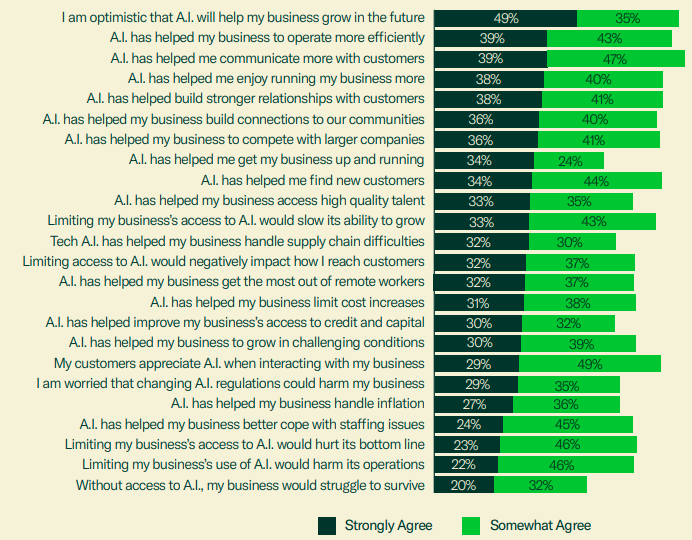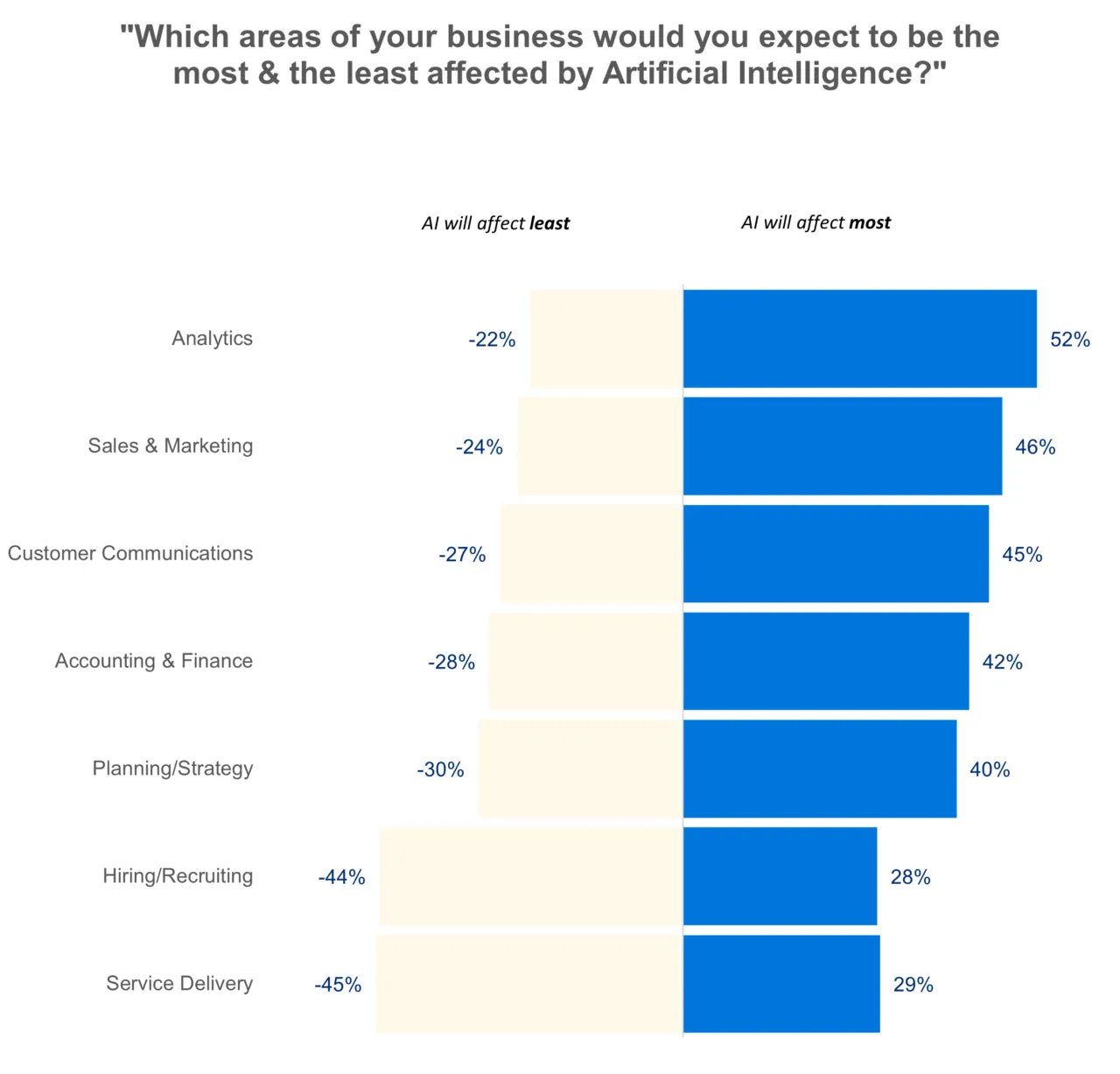1 min read
AI is Transforming Small Business Strategy in the Financial Industry
Austin Milliken, the founder of Aureate Capital, an independent investment bank with a diverse client base, is a strong advocate for the power of AI...
2 min read
 Kevin Burke
:
Apr 11, '24
Kevin Burke
:
Apr 11, '24

Small businesses are the backbone of the American economy, accounting for nearly half of the country's GDP and providing employment for millions. To better understand the challenges and opportunities faced by this vital sector, the U.S. Chamber of Commerce’s
Technology Engagement Center conducts an annual study on the impact of technology on U.S. small businesses.
The U.S. small business sector is undergoing a major transformation, with technology emerging as a crucial element for survival, growth, and efficiency. The "Empowering Small Business: The Impact of Technology on U.S. Small Business" report highlights the profound impact of digital tools and AI on small to medium-sized businesses (SMBs).
Faced with challenges like worker shortages, inflation, and evolving regulations, SMBs are increasingly relying on technology platforms to build resilience and gain a competitive edge. An overwhelming 95% of small businesses now use at least one form of technology platform, and there is a strong correlation between high tech usage and sales growth, employment expansion, and profit increase. This trend towards digital adoption is expected to continue, with 85% of businesses planning to further intensify their use of technology platforms.
Social media and digital payments are the most widely utilized technologies, helping businesses enhance marketing, streamline sales processes, and improve customer communication. Additionally, the adoption of AI is on the rise, with nearly a quarter of small businesses leveraging AI to revolutionize marketing, customer insights, and inventory management, demonstrating its ability to boost performance and customer satisfaction.

Technology has also proven crucial in mitigating the impacts of inflation and supply chain disruptions. By utilizing digital tools, businesses have managed to curb cost increases and navigate the complex terrain of supply chain challenges with greater agility.
As small businesses migrate online, the report highlights the transition from brick-and-mortar establishments to digital storefronts. This shift expands the reach of SMBs and opens up new avenues for customer engagement and sales, underscoring the importance of an online presence in today's market.
However, the journey towards digital transformation is not without its challenges. Regulatory concerns loom large, with businesses wary of the potential implications of tech regulations on their operations. The report advocates for a balanced approach to regulation, fostering innovation while ensuring data privacy and security, and emphasizing the need for policies that support small businesses in harnessing the full potential of digital tools.
In essence, the "Empowering Small Business" report paints a clear picture of a future where technology is deeply integrated into the success of small businesses. It serves as a call to action for SMBs to embrace digital platforms and AI, not merely as tools for survival, but as catalysts for growth and innovation. As the small business landscape evolves, the integration of technology is poised to redefine the competitive landscape, making digital adoption a cornerstone of strategic planning and operational excellence.

1 min read
Austin Milliken, the founder of Aureate Capital, an independent investment bank with a diverse client base, is a strong advocate for the power of AI...

The rapid evolution of AI technology, especially in the realm of generative AI, has primarily been spearheaded by large enterprises. Recent...

https://www.freshbooks.com/press/data-research/data-research-majority-of-small-business-owners-will-use-ai